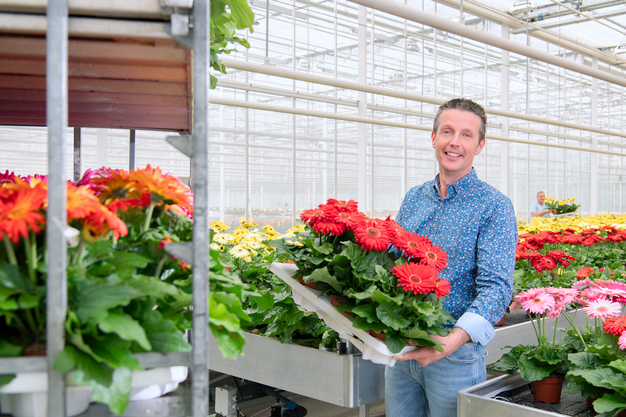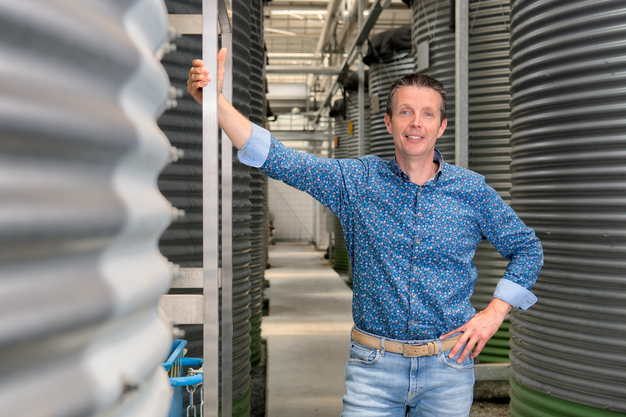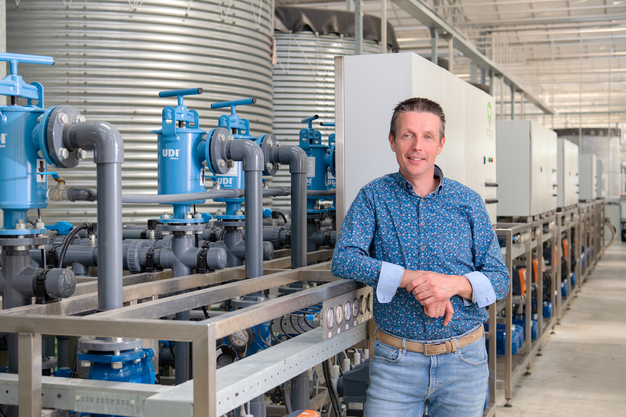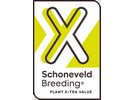Rather than sustainability, Peter van de Pol, director of breeding company Schoneveld Breeding, would like to use the word durability. He says: "When you speak about durability, you talk about the future. For growers, for the planet, and for next generations."

Peter adds: "When I grew up, I saw my parents struggling to earn their living as potato growers. For them, their way of working was not economically durable. It gave me the motivation to work on sharing knowledge and helping growers to cultivate their crops durably, both ecologically and economically. And that automatically makes education the third pillar of what we do as Schoneveld Breeding. We always try to support every partner in the chain – we plant extra value."
Three e's
Peter states that he always feels uneasy when 'his' sector is dismissed as polluting, saying: "As a sector, we have already achieved many of the 2030 climate goals. Our problem is, we don't talk about them. For me, the creed is 'be good and tell it'. But always make sure that what you tell is true. So when I say that Schoneveld Breeding is strong in sharing valuable knowledge, it is knowledge we have tested and built up throughout the years. We are known as a reliable knowledge partner, and we remain so because we truly know what we are talking about. For me, good education is just as important as economy and ecology, these three e's need to be in balance with each other to excel."
Examples
He continues: "Sustainability, or durability, is not only in the DNA of our company, you can also find it in the DNA of our seeds. In fact, we accelerate evolution with our breeding. Our products have a long shelf life, require less labor, are heat-tolerant, can be grown with fewer fertilizers, and so on. And our company and work processes have sustainable features as well. We use hybrid lighting and a closed water cycle."

Tanzania
According to Peter, Schoneveld Breeding's facility in Tanzania is an example of this. "Our second location in Tanzania is being equipped with a solar boiler this year. We want to use the warmth of the sun to heat water. In that way, we can stop using diesel to heat our greenhouses during the night. Such an installation costs money, but at the same time we save money that we do not have to spend on diesel. And, much more importantly, we reduce our impact on the planet. And that is a perfect example of a durable way of working. I love that, we share knowledge and help future generations to build a better life."
Education
He also highlights the Enkedego primary school near the Tanzanian facility. "When we started working in Tanzania, we had to train our employees there. Many of them couldn't read, so we started with pictograms. Over the years, our training program became a primary school. Nowadays, as many as 475 children are getting an education at this school that arose because of our presence there. I love that, we share knowledge and help future generations to build a better life."
Ecology
To illustrate the concept of durable ecology, Peter mentions the Super Serie Leopardo. "We saw growers in hot areas cultivate our products. But we knew we could make their work easier. After all, if a product has the right DNA to flourish in hot conditions, you don't need to help the plant with more water, chemicals, or labor. By introducing Super Serie Leopardo, we achieved that goal." Super Serie Leopardo is part of a threesome with Verano and Elegante as other members of the heat-tolerant family.We noticed that improvements were possible for acaulis growers. That is why we started a breeding program."
Economy
Peter continues about 'his' Paradiso: "Do you know why that is called the number one uniform series among Primula acaulis growers? Because these growers were used to working with different series and colors of different breeders to create a mixture with reasonable uniformity within and between the colors. This resulted in them having to use a lot of growth regulator chemicals to achieve some kind of uniformity within their cultivated products. Next to that, they had a lot of work in collecting plants, because they were not all ready at the same time. We noticed that improvements were possible for acaulis growers. That is why we started a breeding program. Nowadays, growing a Primula acaulis means growing a Paradiso. It is a uniform plant which requires fewer chemicals, less labor, and therefore saves money for growers while at the same time reducing the impact on the environment."

The future
"I always focus on the next generations. If the current way of working continues to have so much impact on the environment, these generations will not have such a joyful perspective. I want to be part of the solution for future generations, not part of the problem. For me, it's about what lies ahead, and we all know: that's a lot. I focus on my own contribution, do what I think is possible. I think it is important to do your work with a truly intrinsic motivation. Do what you can and do it in the best way possible," Peter concludes.
For more information: Schoneveld Breeding
Schoneveld Breeding
www.schoneveld-breeding.com
